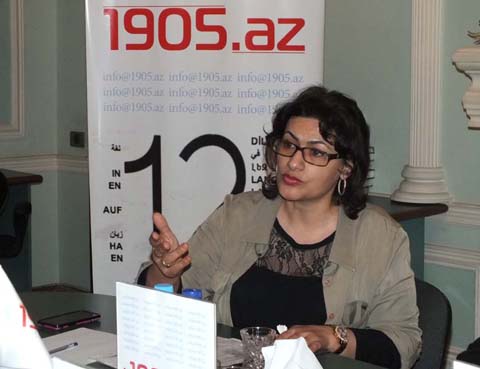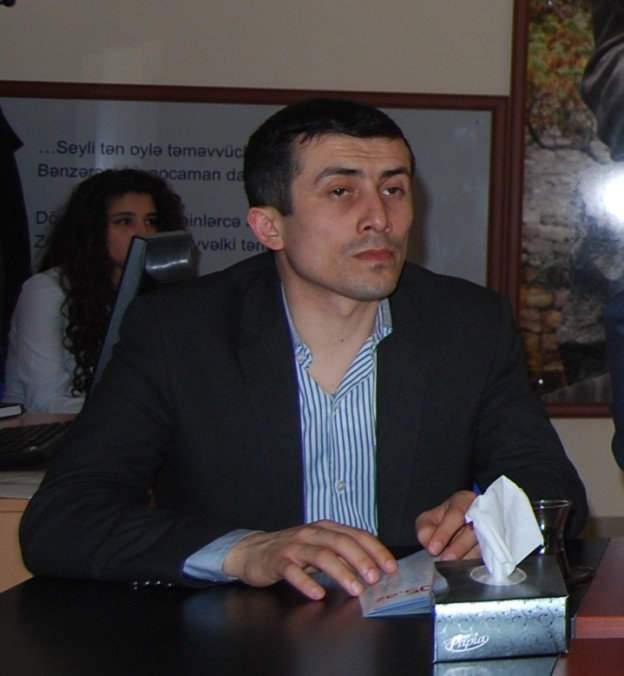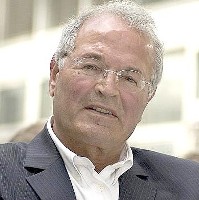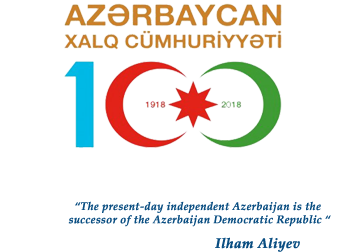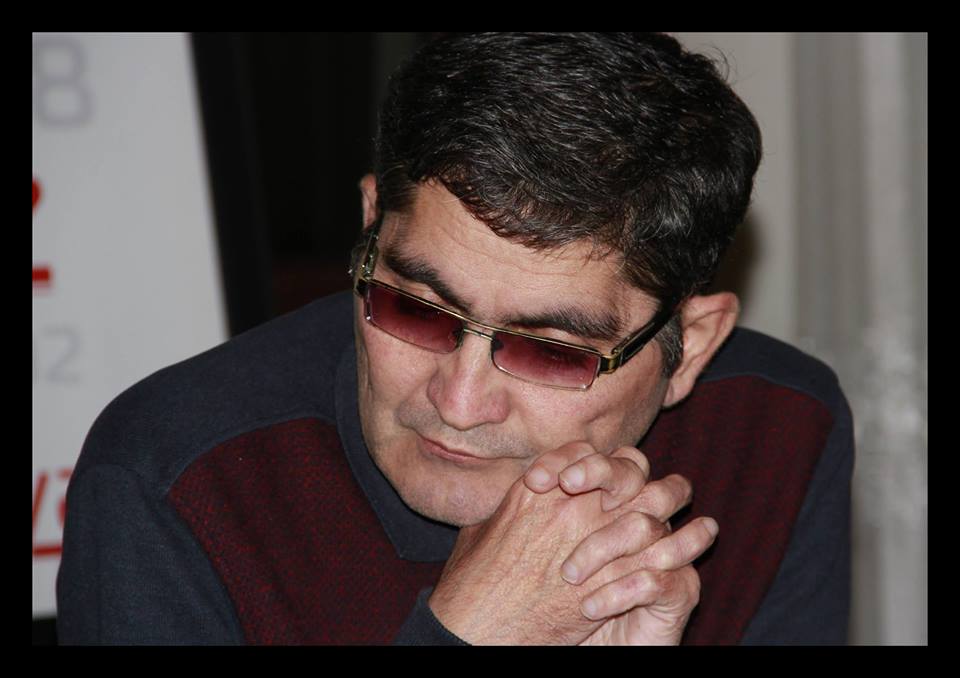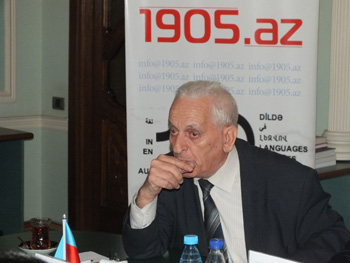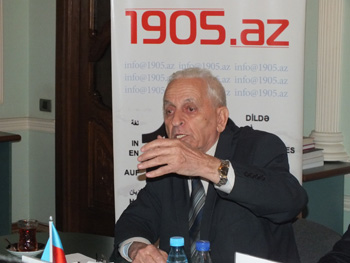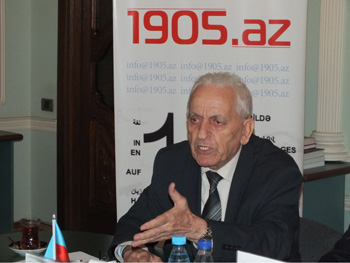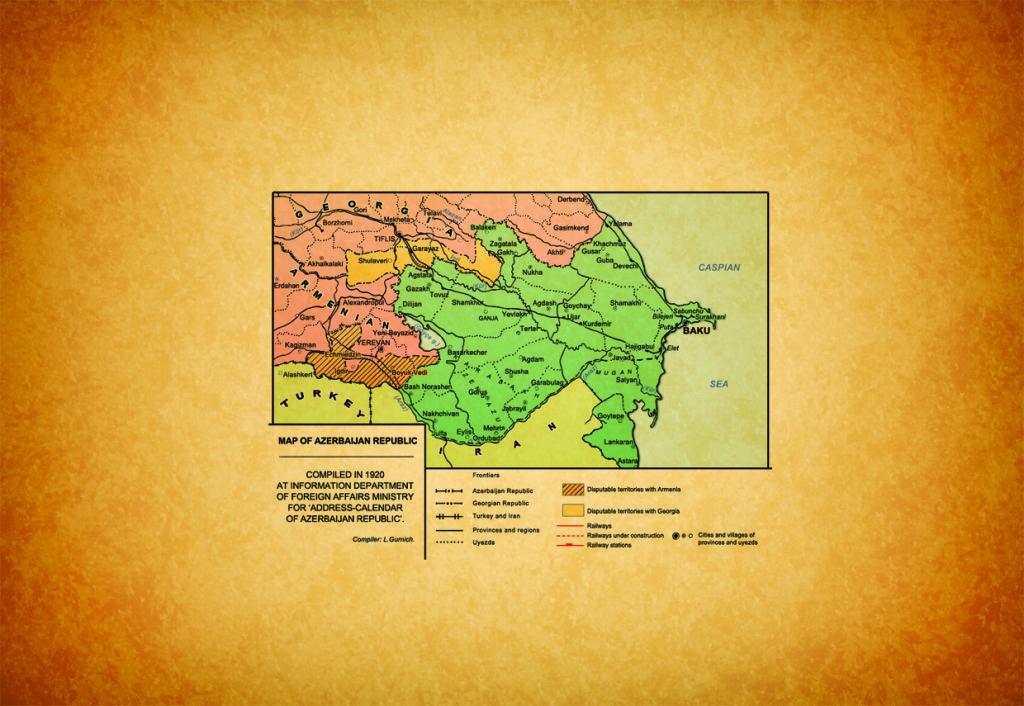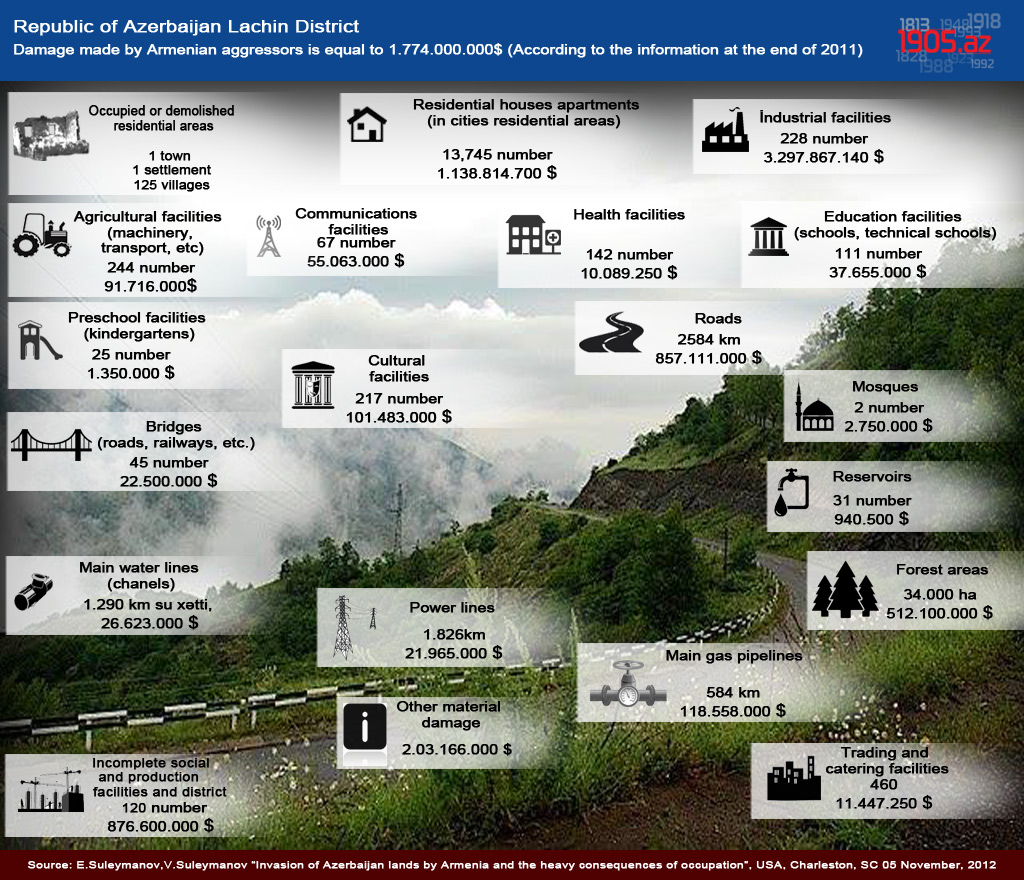– Mr. Ambassador! Speaking recently at the University of Khazar, you stated that “Armenia must withdraw from the occupied territories, and that these lands must be returned to Azerbaijan”. That drew criticism in your address from the Armenian media. Could you clarify once again the position of the United Kingdom on the settlement of the Armenian -Azerbaijani Nagorno-Karabakh conflict?
– The United Kingdom strongly supports a swift, peaceful resolution to the Nagorno-Karabakh conflict.
We support the efforts of the Minsk Group Co-Chairs in mediating to help the parties reach a solution.
Nagorno-Karabakh and the adjacent territories are recognised by the international community as Azerbaijani territory.
But it is clear that the status of Nagorno-Karabakh remains disputed by Armenia and the Armenian population of NK . Therefore, in practice this means that an agreement about the future status of Nagorno-Karabakh must be reached, based on the core Helsinki Principles – non-use of force, respect for territorial integrity and for the equal rights of peoples and their right of self-determination. This is the most difficult element of the conflict and something that must be agreed between all parties.
It is crucial that any resolution of the future status of Nagorno Karabakh must only be achieved through peaceful means.
The status of the territories adjacent to Nagorno Karabakh, which Armenian forces continue to occupy as a result of the military conflict, is not disputed in the same way. These are Azerbaijani territories and as part of any peaceful solution, Armenian forces must withdraw from these territories.
The continued occupation of these territories is one of the obstacles to the achievement of peace and the United Kingdom supports the swift return of these territories to Azerbaijan, as part of a comprehensive peace deal.
– Mr. Ambassador! You often say that Azerbaijan is one of the main partners of the UK. How do you evaluate the current level of Azerbaijan-UK relations, and what would you say regarding future cooperation opportunities?
– Azerbaijan-UK relations are excellent. The UK is the largest Foreign Investor in Azerbaijan, with over 50% of all FDI in Azerbaijan coming from the UK.
We are a strategic partner in the field of energy, with BP playing a vital role in the development of Azerbaijan’s energy sector. We have strong political links, with excellent relations at the highest level.
Prime Minister Cameron and President Aliyev have met many times over the last few years and have had important discussions on issues of regional security.
Foreign Secretary William Hague visited Baku in December 2013 to witness the signing of the Shah Deniz II Final Investment Decision.
The Prime Minister has appointed a Personal Trade Envoy, Professor Charles Hendry to help boost economic and trading links.
Azerbaijan and the UK also co-operate in our joint missions in Afghanistan and in countering threats from terrorism.
In addition, people to people links are superb, with many Azerbaijani students travelling to the UK to complete their educations.
So in all fields of co-operation the UK and Azerbaijan enjoy strong and productive relations.
Azerbaijan’s policy of economic diversification means that there will be even greater opportunities for strengthening UK-Azerbaijan economic co-operation, particularly in the fields of ICT, education, infrastructure and tourism, in all of which the UK has particular expertise and in all of which the UK is very keen to develop even greater co-operation.
– Scotland plans to hold a referendum on its future in the United Kingdom. How do you think, can the principle of self-determination of the people be guaranteed without violation of the territorial integrity of the states (e.g. by means of autonomies and federalization)? What is the solution for such problems as the Crimea, South Ossetia, Abkhazia, Transnistria, Nagorno-Karabakh?
– I spoke about the importance of the Scotland example recently and it appears that this may have caused some misunderstanding.
I do not believe that the situation in Scotland and Nagorno-Karabakh or any of the other disputed areas you mention are the same.
Holding the Scottish referendum was agreed between the UK Government and Scottish Government and is being delivered in the context of peace and open debate.
There is no threat of conflict and all parties have agreed to accept the outcome, even if this means changing the international borders of the United Kingdom.
So in this sense, Scotland is not comparable to Nagorno-Karabakh.
But looked at from a different perspective, there are important principles that could be considered relevant to all.
First, some people in Scotland would clearly like greater autonomy from the UK. To respond to this, the UK offered Scotland a huge amount of devolved autonomy and power in the late 1990s.
Scotland has its own directly elected parliament, its own devolved government and it has authority to make legislation in a number of devolved areas of policy, independently of the UK government.
So we have already implemented a model of wide-scale autonomy in the UK.
However, some people in Scotland would like to end the devolution process, leave the UK and form a fully independent state.
The UK Government respects this wish, even if we disagree with it. We do not want to see the borders of the United Kingdom changed. We believe that the UK is stronger and more successful with Scotland as part of the UK and that Scottish identity and history is deeply interlinked with that of the UK.
But because we respect this wish, the UK Government has agreed with the Scottish Government for a referendum to be held and will accept the outcome, even if it is in favour of independence.
The point here is that if internationally recognized borders are changed, this should only be achieved in a peaceful, democratic and mutually acceptable manner.
– How do you evaluate cooperation between the EU and Azerbaijan in different fields?
– A flourishing civil society is a vital part of any successful state.
Azerbaijan has many civil society institutions that are playing an important role in Azerbaijan’s development.
These institutions should be encouraged and supported to help Azerbaijan develop to its full potential. I think there is some room for improvement in supporting these institutions.
We sometime hear disturbing reports. It will be important that the Government of Azerbaijan shows through the implementation of the new NGO law that the recent amendments to the NGO law helps empower, rather than restrict, the role of civil society.
In terms of EU-Azerbaijan co-operation, I believe that here there is also scope for greater co-operation. I would welcome greater co-operation between the EU and Azerbaijan in the field of civil society, good governance and democracy.
– Recently, UK introduced changes in the VISA procedures for Azerbaijani citizens. Now it’s done via a special company, not the Embassy. What are the first results of the new procedure? What feedback did you receive from Azerbaijani citizens applying for visas? Are there any delays or problems?
Our visa service has changed in line with a new business model that is being implemented throughout the world.
All applications for visas to the UK are now being received by a highly reputable international company, operating from offices in Central Baku, at the Demirichi Towers.
In addition we have a new system for dealing with enquiries, by email, webchat and telephone.
Apart from this change, the process is still exactly the same. Applications and appointments are all made on–line. The fees and targets for processing the visas are the same.
Decisions are still being taken by UK government officials, to the same high standards. So far the feedback has been good.
The service being offered by the company is of a high professional standard and although the new service has only been running for a short period of time, I believe it will meet our high standards.
So I am very confident that this change will not have any negative impact for Azerbaijani citizens.
We are keen for Azerbaijanis to continue to visit the UK, for business, study or leisure and will do everything we can to make this as easy as possible.
– You are now in Baku for a while. What would you like to say about the city and its people?
– I am very happy in Baku. The city is a fantastic blend of old and new. It is beautiful, dynamic and rich in culture. I love being by the Caspian Sea and enjoy going for runs along the magnificent Boulevard – especially now that the weather is getting warmer!
I have also been humbled by the warmth and generosity of the Azerbaijani people. Azerbaijani hospitality is legendary and I have been privileged to have been welcomed so warmly by the people of this country.
I have already made a number of close Azerbaijani friends and am looking forward to deepening my contacts and understanding of the country and people.
Source: News.Az

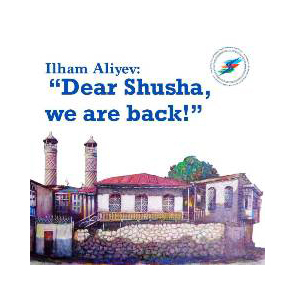
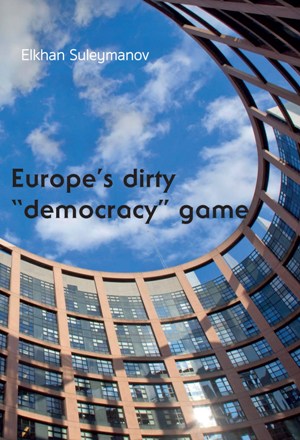
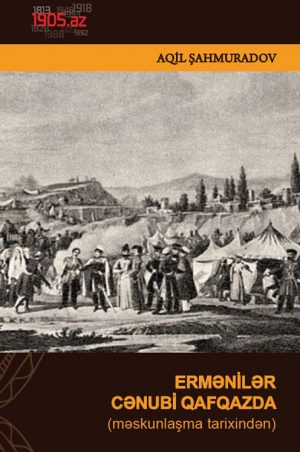
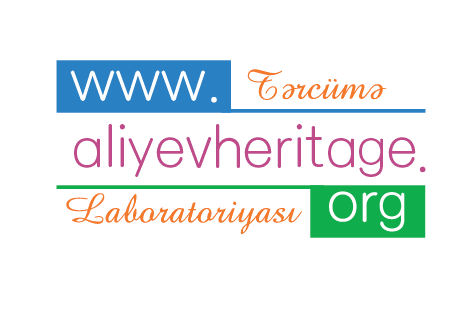




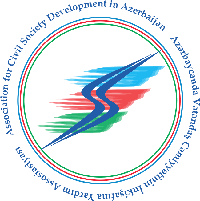
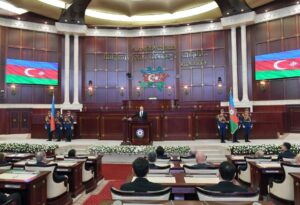 Inauguration ceremony of President of Azerbaijan Ilham Aliyev was held
Inauguration ceremony of President of Azerbaijan Ilham Aliyev was held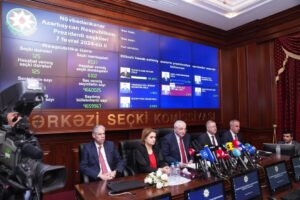 Ilham Aliyev wins presidential election with 92.05 percent of votes VIDEO
Ilham Aliyev wins presidential election with 92.05 percent of votes VIDEO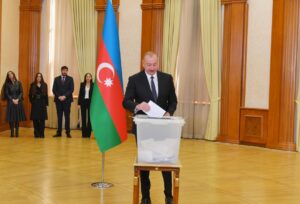 President Ilham Aliyev, First Lady Mehriban Aliyeva and family members voted in Khankendi VIDEO
President Ilham Aliyev, First Lady Mehriban Aliyeva and family members voted in Khankendi VIDEO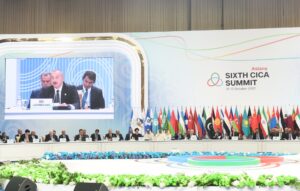 Plenary session of 6th Summit of Conference on Interaction and Confidence Building Measures in Asia gets underway in Astana. President Ilham Aliyev attends the plenary session VIDEO
Plenary session of 6th Summit of Conference on Interaction and Confidence Building Measures in Asia gets underway in Astana. President Ilham Aliyev attends the plenary session VIDEO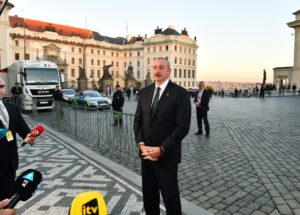 President Ilham Aliyev was interviewed by Azerbaijani TV channels in Prague VIDEO
President Ilham Aliyev was interviewed by Azerbaijani TV channels in Prague VIDEO



